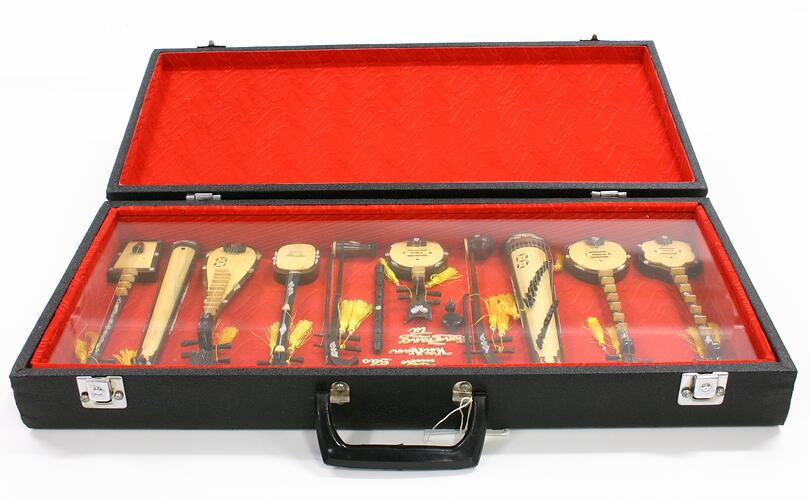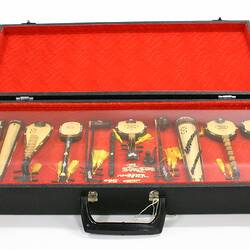Lien Hoang arrived in Australia from Vietnam in 1981. Her father had been in the South Vietnamese army and her mother and three siblings were living in Saigon. Lien was living with an aunt and her grandparents for the sake of her education. The family wanted a better future for Lien who was regarded as very bright and her aunt probably paid for her escape when she was 18 years old. She tried four times to escape Vietnam. The first in 1979, when a huge sum of money was paid but it disappeared. During the second attempt, Lien's uncle was captured and jailed. The third time Lien's boat was caught on a sandbar and she was picked up by the police and jailed for three months with another uncle.
In 1981 she tried again. Lien remembers being put on a bus and travelling all day to the launching place in the Mekong delta at Can Tho. She remembers a crowded boat (about 300 people on a 17 metre boat). They were in the hull for six days and five people died in transit, one of them her aunt who was to look after her. The boat finally arrived at Pulau Trengganu camp in Malaysia but it was unsafe and she stayed only a night. Lien was lucky and was able to move on to Pulau Bidong camp. She was there for 50 days, in very basic conditions, and recalls that they never received all the humanitarian rations they should have.
Lien could have migrated to France via the family reunion scheme as she had an uncle there. Before she died her aunt had advised her to go to America as she had friends there. However Lien was offered Australia first and she was happy to accept the offer, as she felt she did not know these people in France or America anyway. Lien was then a young, single, educated woman; at that time an Australian immigration priority.
Once accepted Lien spent fifty days in Kuala Lumpa awaiting the finalisation of her paperwork and her flight to Australia. She knew hardly anything about Australia and recalls no connection or contact with Australians during the war. On arrival she was sent to Enterprise Hostel in Springvale, where she received a subsidy (about $48 a fortnight), and English language classes. Lien remembers standard food, two people to a room and good facilities. She also recalls that people could not cook in their own rooms, which was difficult for those who could not eat the local fare! Singles could stay for three months - Lien stayed until about March 1982. While other room mates were moving into factory work in the area, Lien wanted to recommence her studies.
She hoped to find assistance from an Australian family. In desperation she went to a social worker in Springvale who introduced Lien to a restaurant owning family in Hartwell. They agreed to rent to Lien a room (at low rates) and support her through Wattlepark High School. She was placed in Year 12 as Year 11 did not offer an ESL class. She passed and was accepted into Medicine at Melbourne University but she needed work to support herself. She stayed with the family for two years and then moved to her own flat in Ascot Vale. Lien featured in a newspaper article, received a $500 donation and was offered housecleaning work.
Nan saw this article and wanted to help. She organised a scholarship for Lien and acted as her guarantor throughout her studies. Lien wanted her family to join her but had no income to make her eligible as a sponsor, she applied constantly but was always unsuccessful. Her father had spent many years in re-education camps and had been harshly treated. She turned to Nan's daughter, Rhyll Rivett, for advice on ways to manoeuvre through the system. Rhyll worked for eight years at Blackburn South Language Centre where she taught many immigrants from Vietnam, Cambodia, Laos and later Latin America and the former Yugoslavia. She assisted Lien in getting her family out to Australia and, along with Nan her mother, provided financial support for Lien.
When Lien became an intern, she applied again for her family to come to Australia and managed to have her parents and brother accepted. She then had another sister accepted through the skilled migration category and then finally and ironically, the last sister was accepted in 1994 because she was the last remaining family member in Vietnam!
More Information
-
Keywords
Vietnamese Immigration, Vietnamese Communities, Vietnamese Culture, Refugees
-
Authors
-
Article types

